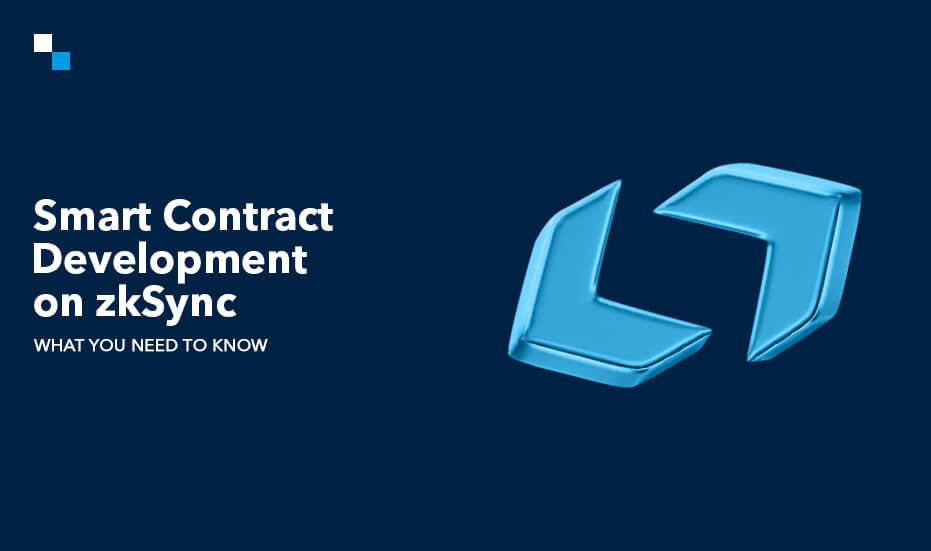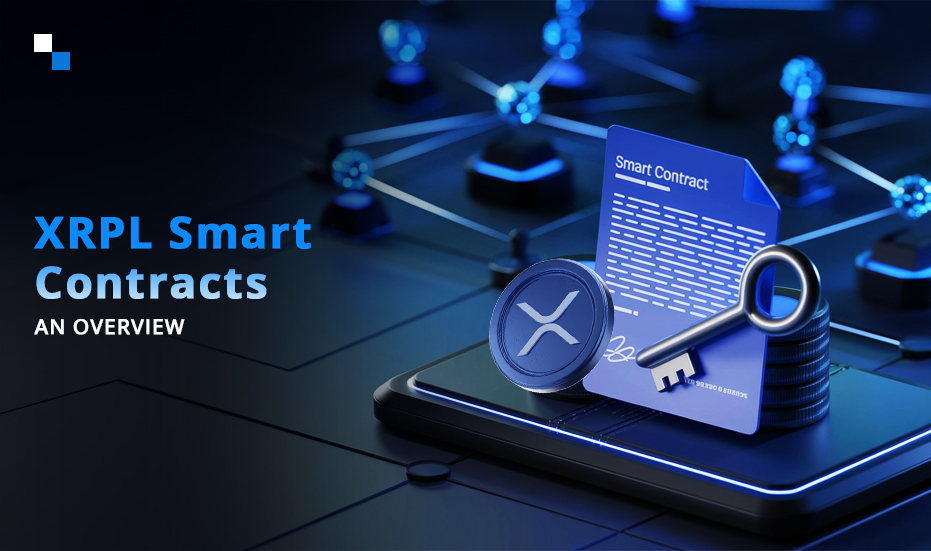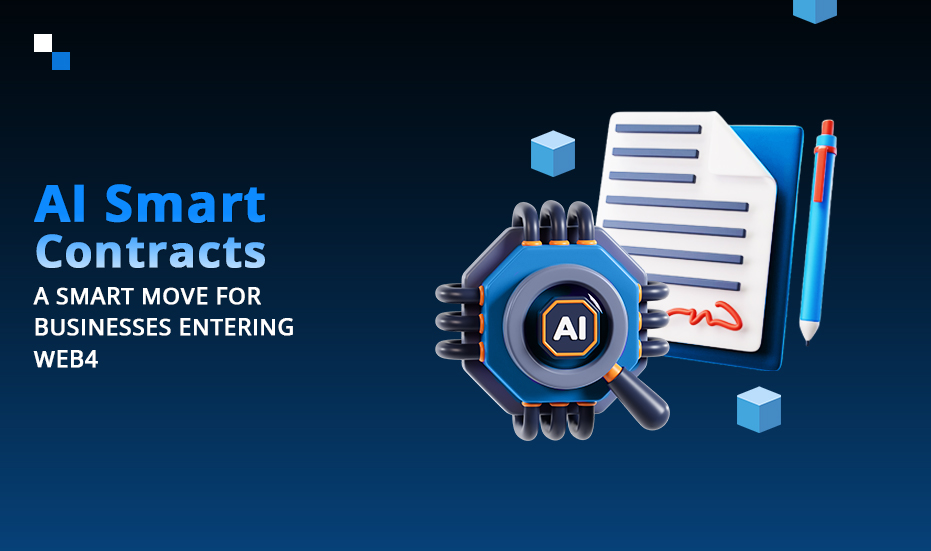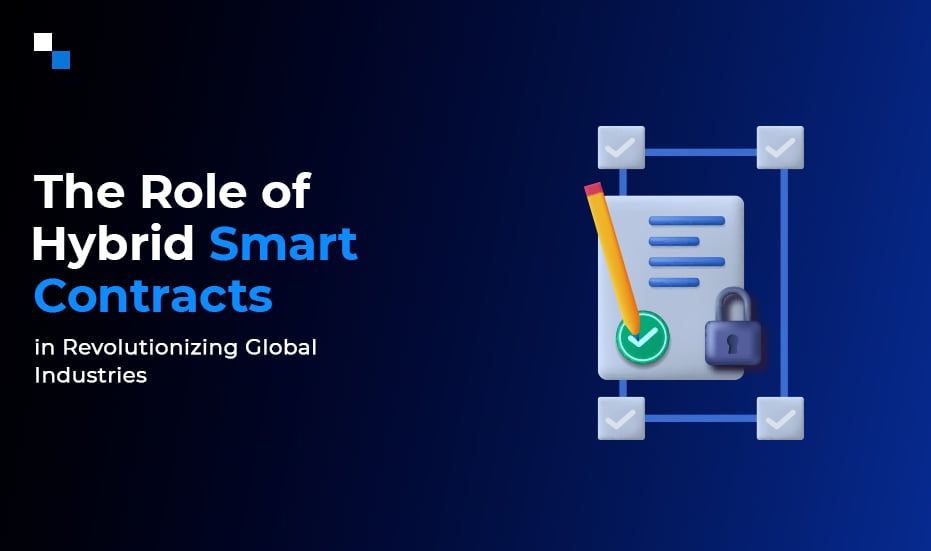
How to Evaluate Development Cost and Create a Web3 White-Label NeoBank?
August 7, 2024
Launch Your Tap Tap Game in 2 Weeks
August 8, 2024Nowadays, zkSync is one of the most promising Layer 2 scaling solutions, which enables faster execution of transactions and lower costs without sacrificing the security guarantees that Ethereum has. zkSync smart contracts have become a hot topic among developers and businesses alike as they ensure the effectiveness and scalability of blockchain applications.
Wondering how to deploy smart contracts on zksync? The article explains the benefits and the process of developing smart contracts on zkSync.
Keep scrolling!
Why zkSync?
zkSync is a very promising layer 2 scaling solution that has several very interesting advantages for smart contract development. zkSync utilizes zero-knowledge rollups to carry out transactions off-chain, while concurrently conducting on-chain verification in an immutable manner. This method greatly diminishes gas fees and enhances transaction throughput, thereby presenting a more favorable option for advancing decentralized applications for developers. This is the reason why smart contract development on zkSync is becoming a new trend in the cryptoshere.
Features of zkSync Smart Contracts
Before we go into the details of how to use smart contracts on the zksync platform, we must be fully aware of the key features that make it the preferred choice for any smart contract development company. Let’s go into more detail:
-
EVM Compatibility
One of the primary advantages of zkSync smart contracts is their compatibility with the Ethereum Virtual Machine (EVM). Developers can write smart contracts using Solidity or Vyper, which helps existing Ethereum projects to be ported into zkSync with very minimal changes. This means that most DeFi projects can easily deploy on zkSync without extensive refactoring and/or re-auditing.
-
zkEVM
The zkEVM is an exceptionally efficient, Turing-complete virtual machine specifically crafted for smart contract development on zkSync. It optimizes the bytecode of smart contracts to handle significant loads and facilitate rapid execution, resulting in transactions being processed almost instantaneously. Such efficiency is vital for applications that require immediate interactions, such as trading platforms and gaming dApps.
-
Composability
This means that a smart contract on zkSync can combine with other contracts seamlessly, just as it happens on the Ethereum chain. This is the power of composability, which makes developers build complex applications using already existing contracts, thereby enhancing capabilities for dApps. Every call tree of transactions is atomic, which essentially means that either all the operations turn out to be a success or everything is reverted to guarantee the integrity of the system.
Key Benefits of Smart Contract Development on zkSync
- Scalability: Smart contract development on zkSync offers a significant advantage in terms of scalability over the Ethereum base layer. zkSync’s capacity to handle thousands of transactions per second empowers decentralized applications to effectively support large user bases without the risk of congestion.
- Cost-Effectiveness: zkSync substantially reduces transaction costs by limiting the data that must be stored on the Ethereum mainnet. This efficiency enables the deployment of sophisticated smart contracts and supports frequent transactions without the burden of high gas fees.
- Security: zkSync leverages the robust security framework of Ethereum, enhancing it with an additional layer of cryptographic protection through the use of zero-knowledge proofs. Consequently, zkSync smart contracts enjoy the dual advantages of Ethereum’s proven security and the supplementary assurances offered by zkSync’s design.
- Compatibility: The smart contract on zkSync is predominantly compatible with the established tools and infrastructure of Ethereum. This compatibility empowers developers to apply their existing skills and resources, simultaneously reaping the benefits of zkSync’s superior functionalities.

Steps of Smart Contract Development on zkSync
The first step is to choose the best smart contract development company that can handle the intricacies of coding, testing, and deployment of your smart contracts. Next will be to discuss the requirements in detail. However, you should still need to understand the fundamentals of building smart contracts on zkSync. Just keep reading!
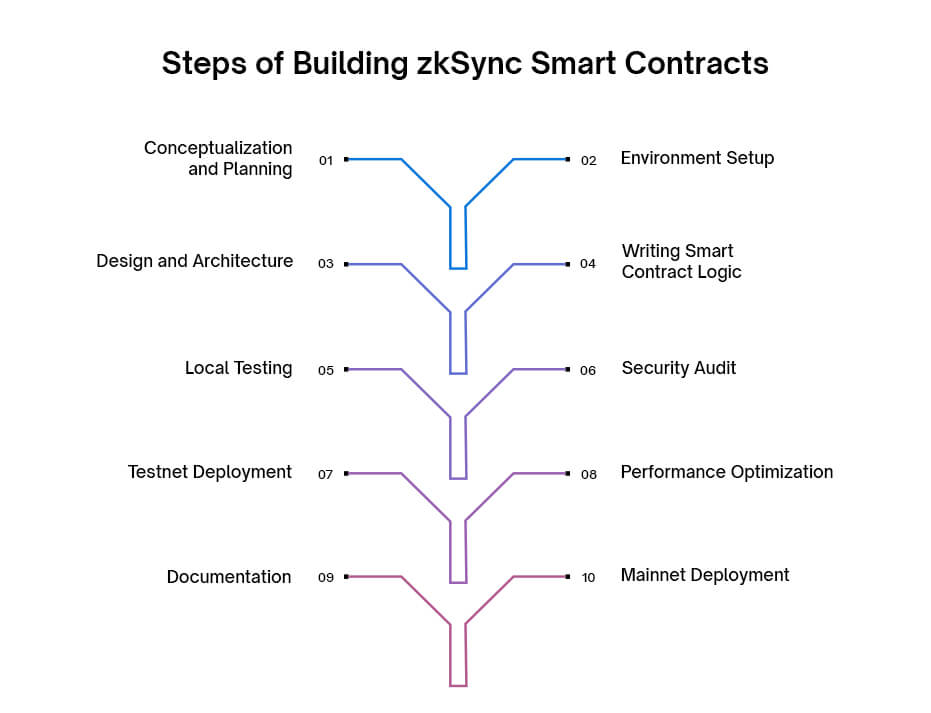
1. Conceptualization and Planning:
- Define the purpose and functionality of your zkSync smart contract
- Outline the contract’s structure and interactions
- Identify potential challenges and security considerations
2. Environment Setup:
- Install necessary development tools (e.g., Node.js, Yarn)
- Set up a zkSync-compatible development environment
- Configure your preferred Integrated Development Environment (IDE)
3. Design and Architecture:
- Create a detailed design document for your smart contract
- Plan the contract’s state variables, functions, and events
- Consider gas optimization strategies specific to zkSync
4. Writing Smart Contract Logic:
- Implement the core functionality of your smart contract
- Ensure compatibility with zkSync’s specific requirements
- Incorporate best practices for smart contract development on zkSync
5. Local Testing:
- Set up a local zkSync development network
- Write and run unit tests to verify individual contract functions
- Perform integration tests to ensure proper interaction between components
6. Security Audit:
- Conduct an internal code review
- Consider engaging a smart contract development company for a professional audit
- Address any vulnerabilities or potential exploits identified
7. Testnet Deployment:
- Deploy your smart contract to zkSync’s testnet
- Verify the contract’s functionality in a live environment
- Test interactions with other contracts or external systems
8. Performance Optimization:
- Analyze gas usage and optimize where necessary
- Fine-tune the contract for efficient execution on zkSync
- Implement any zkSync-specific optimizations
9. Documentation:
- Create comprehensive documentation for your smart contract
- Include setup instructions, function descriptions, and usage examples
- Document any zkSync-specific considerations or requirements
10. Mainnet Deployment:
- Prepare for deployment to zkSync’s mainnet
- Double-check all parameters and initial state
- Execute the deployment transaction
Final Thoughts
Smart contract development on zkSync is a step forward in the blockchain sphere since it provides all of the tools and functionality to build efficient, secure, and scalable applications. zkSync is perfectly suitable for building smart contracts due to its EVM compatibility, zkEVM, and composability properties.
Partner with Antier, a skilled smart contract development company, to get custom solutions and ongoing support. The integration of zkSync smart contracts is not simply a trend; it is a strategic initiative aimed at fostering a more efficient and secure future in decentralized finance and beyond. Together, we can achieve this goal.
